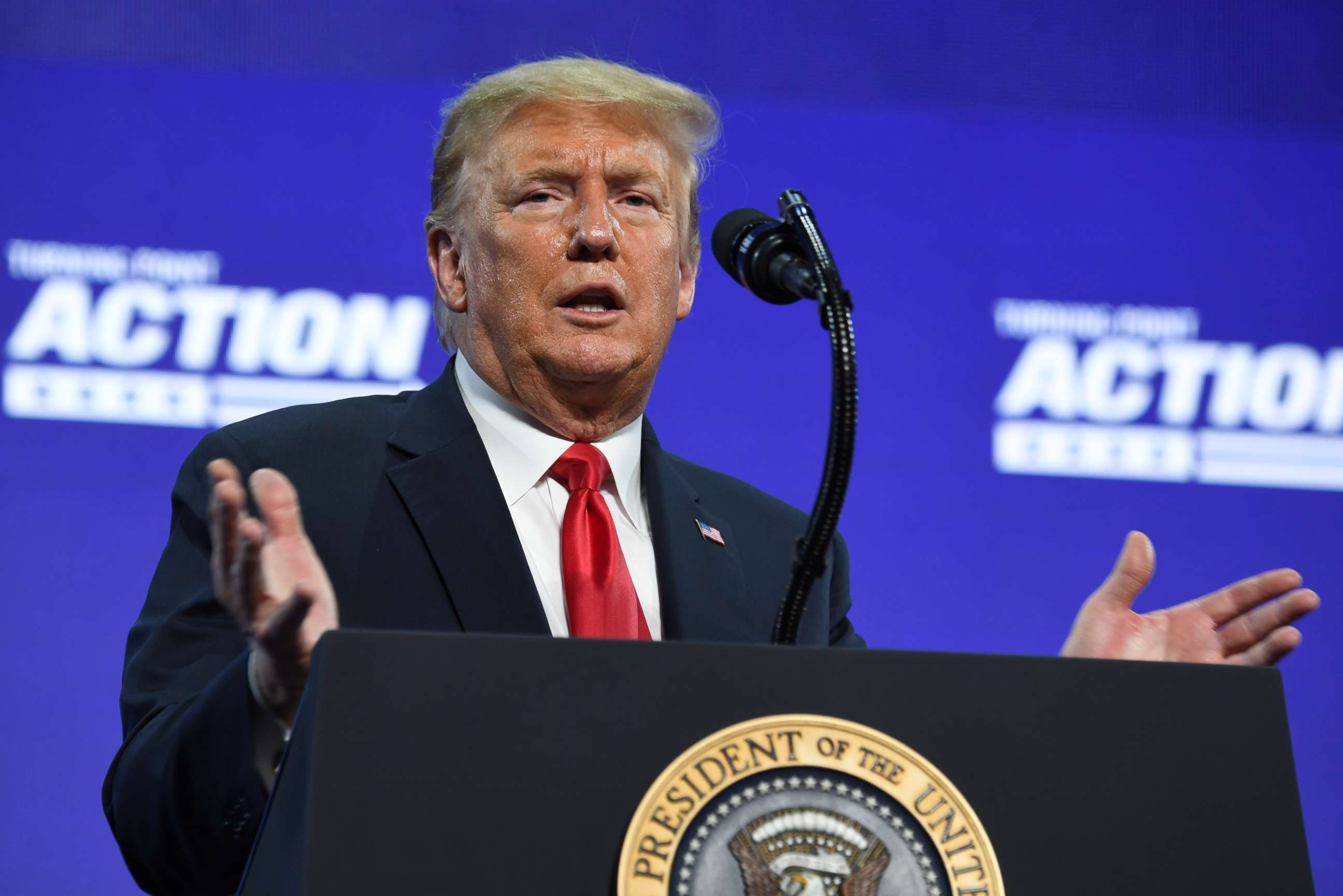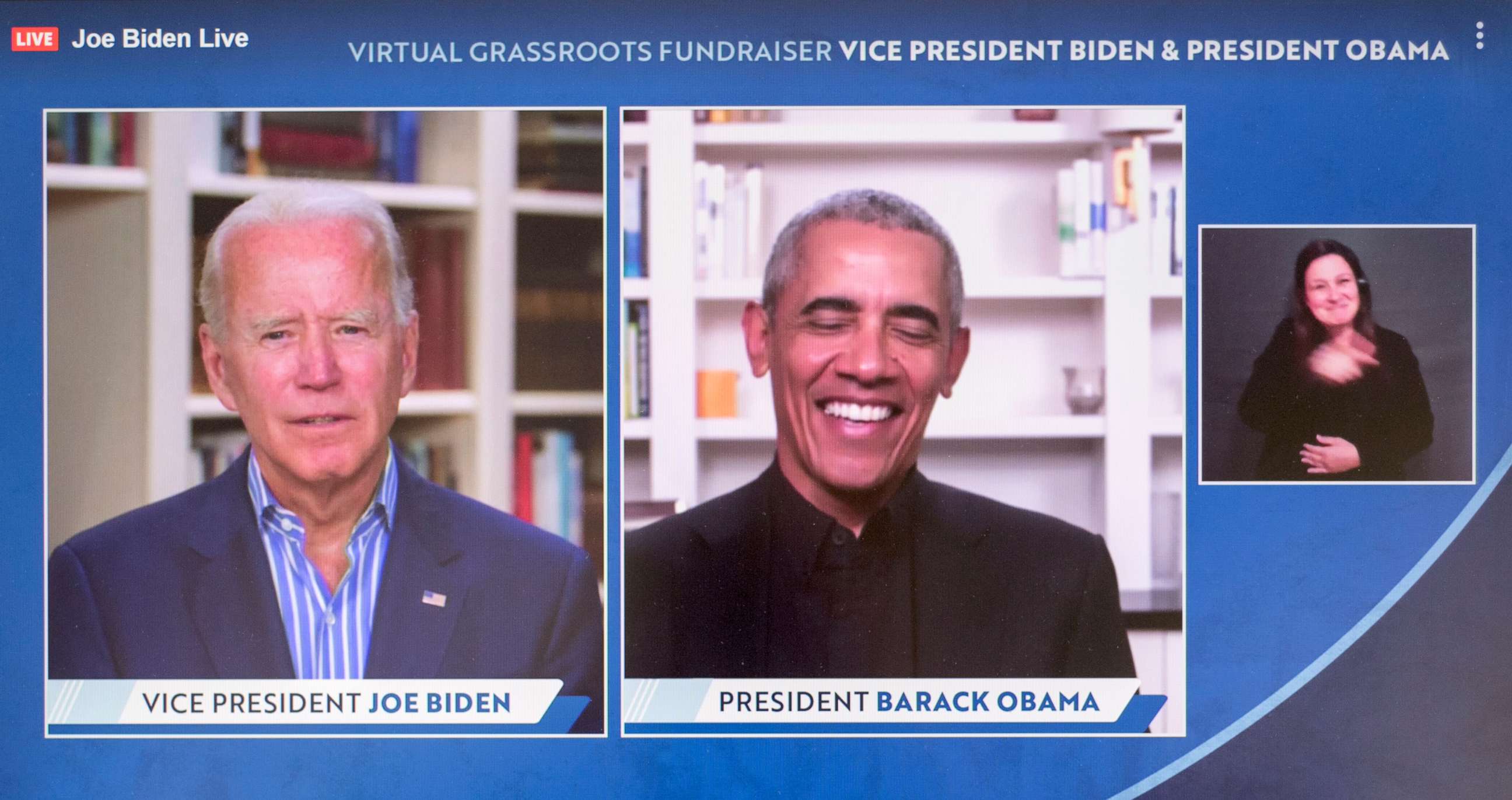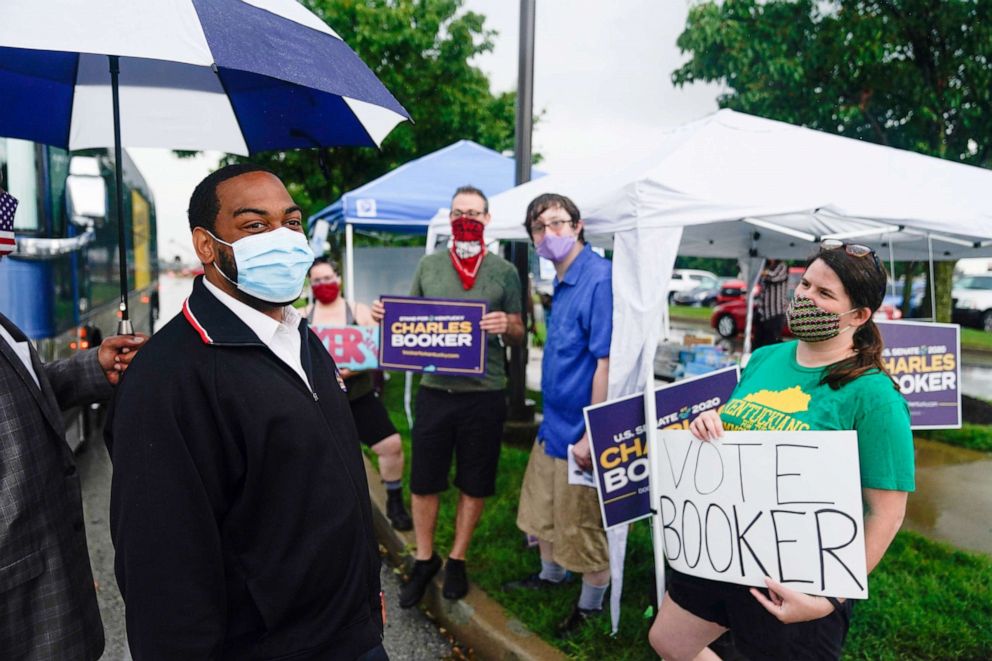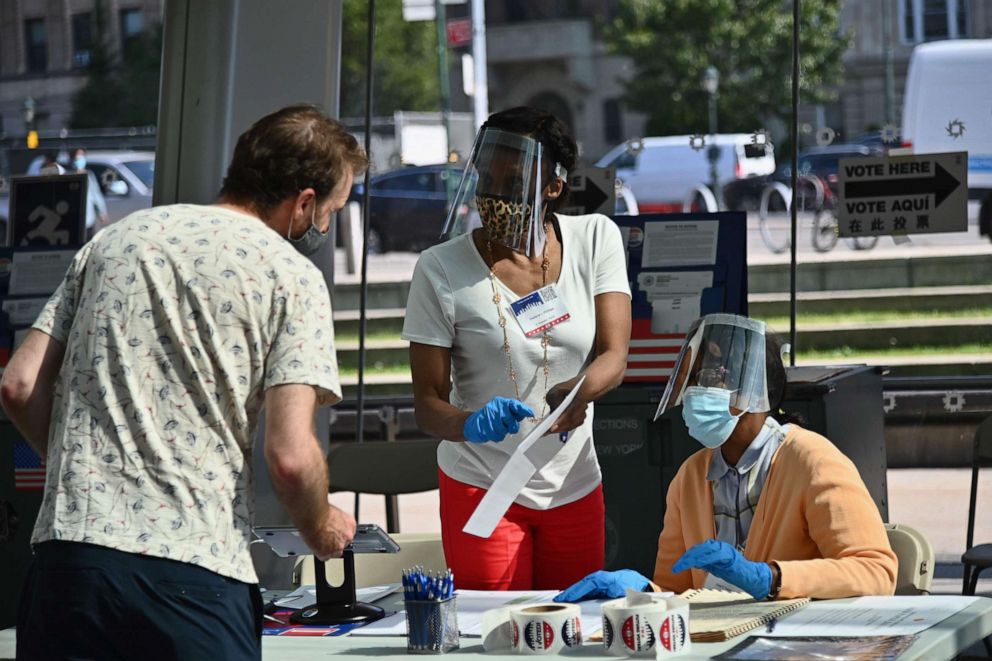The Note: Split screen reveals campaigns operating in different worlds
Trump and Biden are making bets on where the country will land this fall.
The TAKE with Rick Klein
There's something about 175,000 donations and the company of a former president that can make a basement seem a little less lonely.
And there's something about a campaign event in another state reeling from a COVID-19 spike that can make a president seem alone.
President Donald Trump's appearances in Arizona on Tuesday were jarring in part because, just hours earlier, Dr. Anthony Fauci and other top health officials in his administration issued a stark assessment of the pandemic that included advice on social distancing and mask-wearing that wasn't heeded at the event.

Former Vice President Joe Biden's virtual appearance with former President Barack Obama, meanwhile, was a reminder that campaigning in accordance with CDC guidelines can actually have advantages. Biden got a cash haul that may be more valuable than dominating a news cycle -- especially if making that news is not for the best of reasons.
"How we structure campaigning has to be different," Obama said. "And we have to listen to public health experts."

Trump holding Saturday's event in Oklahoma produced embarrassing visuals and a strange soundbite about slowing testing that, days later, and amid confusing semi-walkbacks, looks even likely to fuel attack ads. The Arizona event was less about drawing a crowd than it was about tending an activist base -- and the president peppered in a "Kung Flu" reference for good measure.
The Trump campaign has long been trolling Biden for largely staying at home throughout the pandemic. Biden has mostly stayed out of news cycles, on the calculation that the president's own actions are doing more political damage to him than anything the former vice president might contribute.
This will not be an election waged on the same terrain. Trump and Biden continue to inhabit different realities -- both making a bet on where the country will land this fall.
The RUNDOWN with MaryAlice Parks
In Kentucky on Tuesday, Democratic senate candidate Charles Booker's campaign offered voters $20 ride-share vouchers if they were having a hard time getting to the polls.
After all, many voters had to travel much further than usual to cast their votes as the state put in place a new, bipartisan policy setting up only one polling location in each county.
"One location is not enough. It's going to naturally suppress votes," Booker said on Tuesday, adding that Kentucky's secretary of state needed "to understand his blind spots."
The secretary of state has been quick to call the election day a major success story -- lines and processes at the mega-polling sites in two of the state's convention centers had been smooth. Turnout seemed strong.
Still, there was a widely seen dispute at the end of the day when one site was closed despite claims that there were still people arriving to cast their ballot. A judge had to intervene.
"Just because turnout is going to be higher doesn't mean that votes won't be suppressed. That just means we're determined. It should not be hard to vote," Booker shot back.

Secretary of State Michael Adams, a Republican, dismissed claims of voter suppression. But the optics of the single voting site were tough for the state and maybe those outside Kentucky will use the issue as a rallying cry for better voting access.
New York on Tuesday struggled to meet the high demand for absentee ballots. That challenge, of course, could be greater and more urgent in the fall.
When it comes to November -- could Twitter's internal decision Tuesday to make Election Day a paid day off for employees start a new trend? We have seen corporations again lead the way on cultural and policy changes over the last few weeks.
The TIP with Kendall Karson
Election day might be over in Kentucky and New York, but now the real wait begins for results. Some of the outcomes, expected next week, might just reflect how much the country is shifting to meet the moment. But behind the delays is record turnout, since counting all the mail-in ballots takes time.
By Tuesday afternoon, Adams was making unofficial projections for Kentucky's turnout, saying that the commonwealth is on track to reach 1.1 million voters, which would surpass 2008's turnout levels when 922,000 ballots were cast. Of the roughly 889,000 voters who requested an absentee ballot, over 500,000 have been returned so far. But state officials are expecting up to 90% of ballots to be returned, since somewhere between 30%-40% of ballots are returned on election day or the day after.

In New York, turnout was off to a good start even before Tuesday, with officials already reporting a record-setting crush of mail ballots in a state unaccustomed to vote-by-mail. More than 1.8 million absentee ballots were requested on the eve of the election, the state board of elections told ABC News, which is a 12-fold increase since 2016 -- underscoring the state's preference for in-person voting before COVID-19.
With such high enthusiasm now when the presidential primaries are settled, and when a number of winners won't be declared on election night, come the fall, voters and officials should prepare for a potentially week-long November election.
THE PLAYLIST
ABC News' "Start Here" Podcast. Wednesday morning's episode features ABC News Senior National Correspondent Terry Moran, who tells us about President Donald Trump's visit to Arizona and his team's mixed messaging on coronavirus testing. Then, Dr. Marina Del Rios from the University of Illinois Hospital in Chicago explains the extreme impact COVID-19 is having on the Latino community. And, ABC News' Linsey Davis gives us an update on Bill Cosby's legal situation and the impact it could have on other #MeToo cases.http://apple.co/2HPocUL
ABC News' "Powerhouse Politics" podcast. As results come in from the Kentucky primary, ABC News Senior Congressional Correspondent Mary Bruce joins ABC News Political Director Rick Klein and Chief White House Correspondent Jonathan Karl to discuss the contentious race to unseat Senate Majority Leader Mitch McConnell. Bruce shares her interviews with the two Democratic contenders, Amy McGrath and Charles Booker.https://bit.ly/2w091jE
WHAT YOU NEED TO KNOW TODAY
Download the ABC News app and select "The Note" as an item of interest to receive the day's sharpest political analysis.
The Note is a daily ABC News feature that highlights the day's top stories in politics. Please check back tomorrow for the latest.



